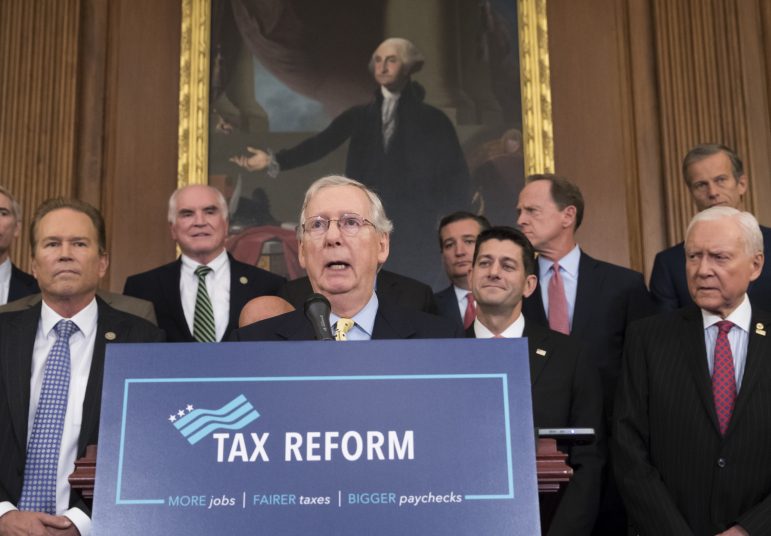Like most Americans, we oppose the Republican tax bill that is hurtling toward passage because of what it would do to the economy.
The massive permanent corporate cuts would extend wealth inequality, which is at its greatest level since before the Great Depression. The new rate for pass-through businesses would create a loophole that those who already have the most money could use to shelter income, effectively cutting their own taxes. And the estimated $1 trillion it would add to the deficit would put budget pressure on key safety net programs such as Social Security, Medicare, Medicaid and the Supplemental Nutrition Assistance Program (food stamps) at a time when our population is aging and those programs need to grow.
There is still time to stop this runaway train, especially in the Senate, where the partisan majority is slim. We were disappointed to see Sen. Susan Collins announce her support for the bill Monday, and we urge her to change her mind. She should vote against this bill, if not just because of the bad things it would do, but the good things it won’t do.
Middle-class families need economic policies that keep their heads above water now, promise their children a brighter future and provide a secure retirement in old age. The Republican tax bill fails to further any of those goals.
• The bill will not lower health care costs. The biggest drag on middle-class advancement is not tax rates, but rising health insurance premiums, and this bill is predicted to make the situation worse by removing the Obamacare individual mandate.
Sen. Collins has proposed two bills that could offset at least part of that projected increase, but even if her bills can get past anti-Obamacare extremists in the House, they would do no better than bring the already-too-high rates back to the status quo.
• The tax bill will not increase social mobility. By concentrating wealth and power in fewer hands, opportunities to move up the social ladder become the property of the richest as well. America was once the land of opportunity, but according to multiple studies, including one published by the Federal Reserve Bank of St. Louis, a child born in the bottom 20 percent in America has a lower chance of reaching the top 20 percent than a similarly placed child in a number of other developed countries, including Canada, Great Britain and Denmark.
• The tax bill will not guarantee a stable retirement in old age. Families see lifetimes of savings disappear when someone has to go into long-term care. Cutting taxes on the wealthy won’t help middle-class families face those costs, but it could preclude the federal government from taking action in the future.
Federal income tax rates may be a top issue for millionaires and billionaires, but most Maine families have much bigger problems. Collins should put their interests first, and vote “no.”
Send questions/comments to the editors.


